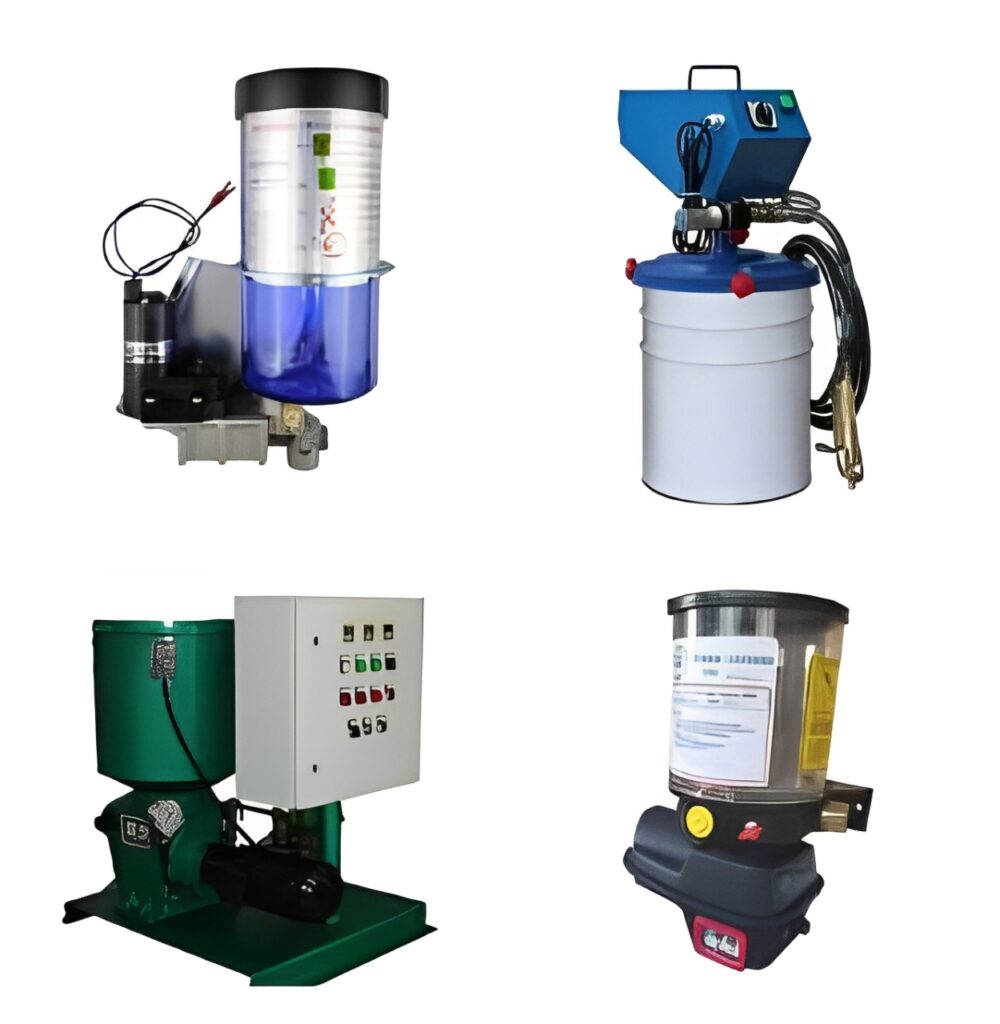Introduction to Electric Grease Pumps

Industrial maintenance plays a vital role in ensuring smooth operations, extending equipment life, and preventing unexpected breakdowns. Lubrication is one of the most important aspects of maintenance, as it reduces friction, minimizes wear, and keeps machines operating at optimal levels. Traditionally, manual grease guns or pneumatic systems were widely used to lubricate machinery, but these methods often involve time-consuming processes, inconsistent results, and higher labor requirements. With the advent of the electric grease pump, industries have found a modern solution that combines convenience, precision, and efficiency.
An electric grease pump automates lubrication processes, ensuring accurate grease application, consistent pressure, and reduced human intervention. These pumps are now integral in heavy industries such as manufacturing, mining, construction, automotive, and food processing. Their adoption has revolutionized the way industries approach routine lubrication tasks.
The Role of Lubrication in Industrial Maintenance
Before exploring the benefits of electric grease pumps, it is crucial to understand why lubrication is indispensable. Machines with moving parts generate friction, which can cause wear and tear if not managed properly. Proper lubrication ensures:
- Reduced friction between metal components
- Extended life of machinery and parts
- Lower maintenance costs and downtime
- Improved energy efficiency due to smoother operations
- Prevention of overheating and component failure
However, the effectiveness of lubrication largely depends on how accurately and consistently it is applied. Over-lubrication can cause seal damage, while under-lubrication leads to rapid wear. This is where an electric grease pump provides precise control, reducing the risks associated with manual lubrication methods.
Advantages of Using an Electric Grease Pump
Consistency and Precision
One of the biggest advantages of using an electric grease pump is its ability to deliver consistent lubrication at controlled intervals. Unlike manual methods, which can vary depending on the operator’s skill, an electric pump ensures every bearing and joint receives the exact amount of grease required.
Time and Labor Savings
Industrial environments often involve hundreds of lubrication points that require attention. Manually greasing each point can take hours and require several workers. With an electric grease pump, lubrication tasks are automated, reducing labor costs and freeing up maintenance teams to focus on more critical tasks.
Enhanced Safety
In many industries, lubrication points are located in difficult-to-reach or hazardous areas. Manual lubrication exposes workers to risks such as slips, falls, or contact with moving machinery. Electric grease pumps, especially when integrated into centralized systems, reduce the need for workers to physically access dangerous zones, improving workplace safety.
Reduced Equipment Downtime
Unexpected breakdowns are costly and disruptive. By providing consistent lubrication, electric grease pumps minimize the risk of machinery failures caused by inadequate lubrication. This translates into fewer unplanned shutdowns and smoother production processes.
Environmental and Cost Efficiency
An electric grease pump optimizes the amount of grease used, preventing waste and lowering the overall cost of consumables. Additionally, reduced spillage and over-lubrication make the process more environmentally friendly.
Applications of Electric Grease Pumps in Industries
Manufacturing Sector
In manufacturing plants, machinery such as conveyor belts, presses, and rotating equipment demand constant lubrication. An electric grease pump ensures uninterrupted production and reduces the likelihood of bottlenecks due to equipment breakdowns.
Mining and Heavy Machinery
Mining equipment like excavators, crushers, and drills operate under extreme conditions. Manual lubrication in such settings is not only difficult but also inefficient. Electric grease pumps provide reliable lubrication even in rugged environments, ensuring longer equipment life.
Automotive and Transportation
Electric grease pumps are widely used in automotive workshops and transport fleets to maintain vehicles. They provide quick and accurate lubrication to suspension systems, bearings, and chassis components, reducing servicing time and enhancing vehicle reliability.
Food and Beverage Industry
In food processing plants, hygiene and safety are paramount. Electric grease pumps are often designed with sealed systems to prevent contamination, ensuring that lubrication is both efficient and compliant with food-grade standards.
Types of Electric Grease Pumps
Electric grease pumps come in different configurations depending on the needs of an industry:
- Portable electric grease pump: Ideal for small workshops and mobile servicing, allowing technicians to move easily between equipment.
- Centralized lubrication systems: Used in large-scale industries where multiple machines require automated lubrication at the same time.
- High-pressure electric grease pump: Designed for heavy-duty applications that require grease to be delivered under high pressure for demanding equipment.
Key Features to Look for in an Electric Grease Pump
When selecting an electric grease pump, industries should consider the following features:
- Pumping capacity and pressure range suitable for the application
- Durability and resistance to harsh industrial environments
- Compatibility with different grease types and viscosities
- Automation options such as timers, controllers, or integration with monitoring systems
- Portability and ease of use for technicians
Integration with Smart Maintenance Systems
Modern industries are adopting predictive and preventive maintenance strategies supported by IoT and digital monitoring. An electric grease pump can be integrated into these smart systems, allowing maintenance managers to track lubrication schedules, monitor grease levels, and receive alerts when servicing is required. This not only improves operational efficiency but also extends the lifespan of critical assets.
Long-Term Benefits of Electric Grease Pumps
Over time, the use of an electric grease pump contributes significantly to operational savings. Reduced downtime, fewer equipment replacements, optimized use of grease, and lower labor costs combine to provide a high return on investment. Furthermore, as industries continue to adopt automation, electric grease pumps align seamlessly with broader efficiency and sustainability goals.
Conclusion
Efficient lubrication is the backbone of industrial maintenance, and the electric grease pump has emerged as a powerful tool in achieving this efficiency. By delivering consistent, precise, and automated lubrication, these pumps reduce downtime, cut costs, and enhance safety across industries. From manufacturing to mining, automotive, and food processing, their applications are vast and transformative. Investing in electric grease pump technology is not just about modernizing maintenance—it is about ensuring long-term operational reliability and efficiency in an increasingly competitive industrial landscape.
